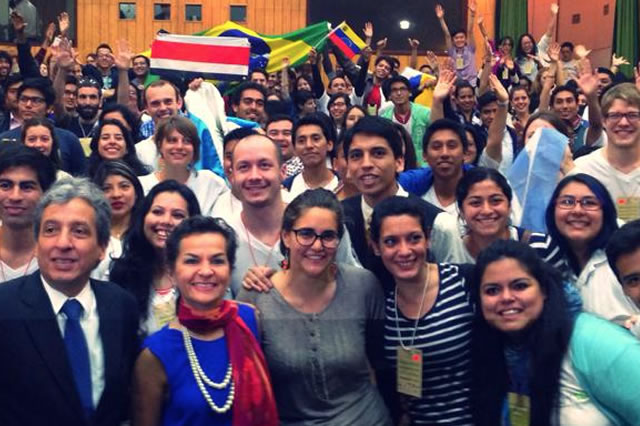Statement from Mary Robinson, President of the Mary Robinson Foundation – Climate Justice on Young and Future Generations Day
Growing inequality, extreme poverty and the threat of climate change bring into focus the fact that the actions (or inactions) of the present generation can jeopardise the rights and wellbeing of generations yet to be born. This should hasten the need for responses that enhance equity between generations.
Young people and future generations matter. They hold a legitimate interest in the outcome of ongoing negotiations in both the climate and development processes. Their concerns extend beyond the lifetimes of the people negotiating the processes and yet those negotiations will ultimately determine whether the world in which they live out their lives offers opportunities in terms of quality of life, personal safety and equity.
Four years ago I attended COP16 in Cancun where I joined a panel of speakers on gender sensitive climate action. I shared the UNICEF panel with a young woman from Haiti who’s first words when she addressed the audience were “why am I freezing in this room?” Of course there were red faces about the level of air conditioning during a climate change conference but what struck me most about the statement was how oblivious the majority of us were to the fact; this young woman’s perspective was not jaded. We need this type of perspective around all decision making tables. The effective participation by young people in climate policy decision making is vital for climate justice.
Incorporating the principles of intergenerational equity into two significant international processes taking shape in 2015, the new climate agreement and the Post-2015 Development Agenda, requires an approach that considers a combination of strategies – some specific to these processes individually, and some to enhance the standing of intergenerational equity more broadly within international dialogue;
- Establishment of a Commission or Commissioner for Future Generations at an International Level
- Strengthening Youth Participation in both processes
- Incorporation of Intergenerational Equity indicators into the Sustainable Development Goals
- Incorporation of Intergenerational Equity into the Intended Nationally Determined Contributions (iNDCs) equity review.
My generation is the first to really understand the impacts of climate change and we are the last who can address it before too much damage is done. Those of us who are alive today must recognise how much power we have over those who are yet to come and we must use that power equitably.
Today, Young and Future Generations Day, the words of the ancient proverb ring in my ears “We do not inherit the earth from our ancestors; we borrow it from our children”. These are wise words indeed to guide us in our task of setting a fair, ambitious and legally binding climate agreement.


